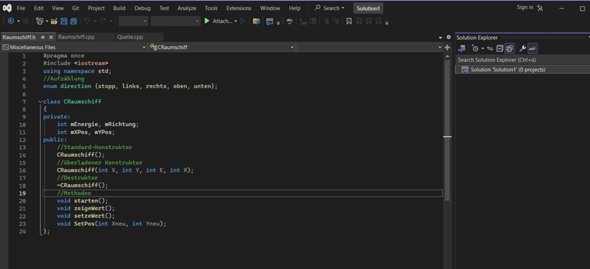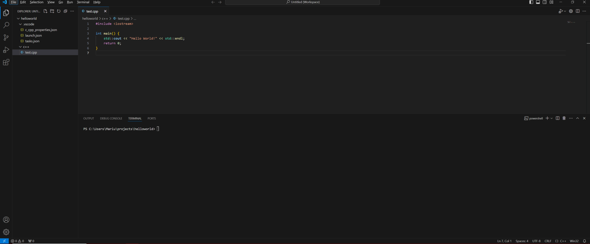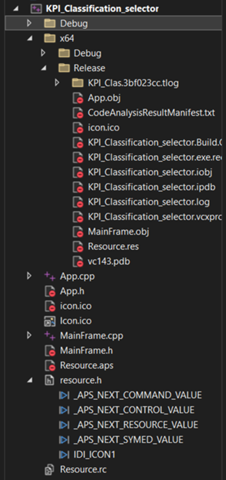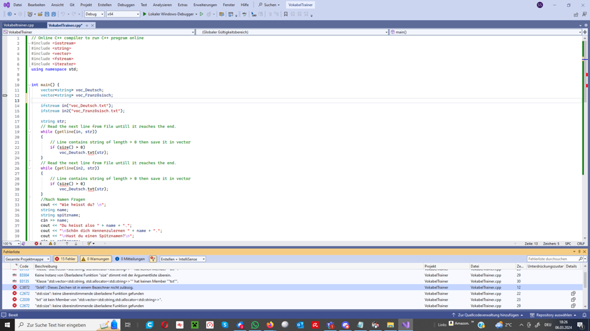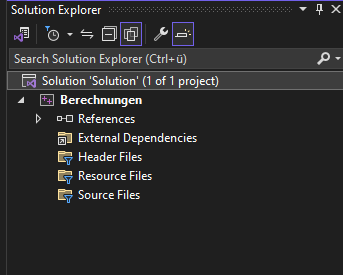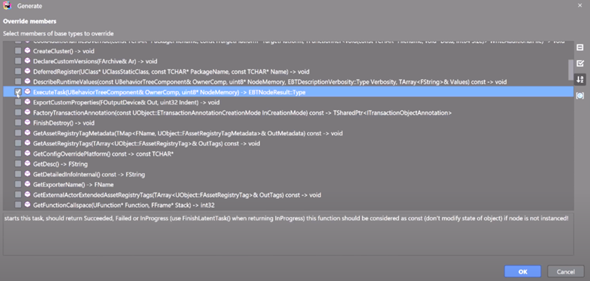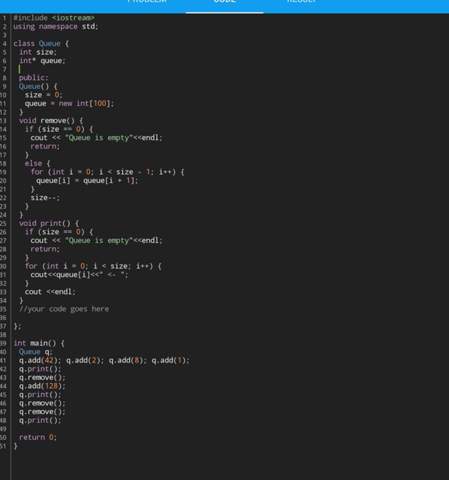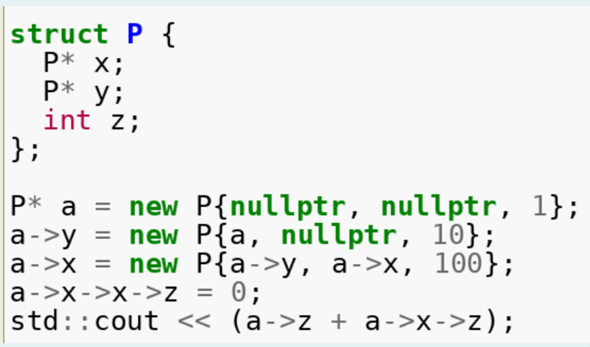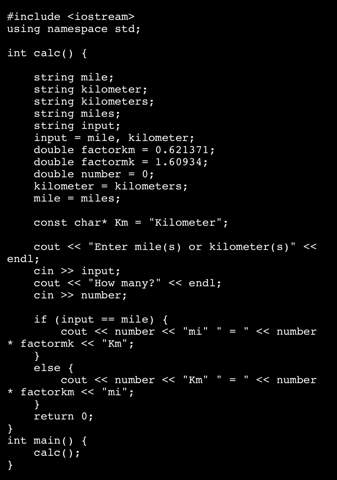Ich habe den Arduino-Doodlebot ( ein roboter der malen kann ) gebaut und versuche nun ihn so zu programmieren, dass er "HALLO" schreibt, jedoch schreibt er statt "HALLO" einfach ein H und dann noch eins undso weiter (er hört nicht auf ).
Hier ist der Code:
//
#include <Servo.h>
// setup servo
int servoPin = 8;
int PEN_DOWN = 90; // angle of servo when pen is down
int PEN_UP = 180; // angle of servo when pen is up
Servo penServo;
float wheel_dia=82; // # mm (increase = spiral out)
float wheel_base=112; // # mm (increase = spiral in, ccw)
int steps_rev=128; // # 512 for 64x gearbox, 128 for 16x gearbox
int delay_time=6; // # time between steps in ms
// Stepper sequence org->pink->blue->yel
int L_stepper_pins[] = {12, 10, 9, 11};
int R_stepper_pins[] = {4, 6, 7, 5};
int fwd_mask[][4] = {{1, 0, 1, 0},
{0, 1, 1, 0},
{0, 1, 0, 1},
{1, 0, 0, 1}};
int rev_mask[][4] = {{1, 0, 0, 1},
{0, 1, 0, 1},
{0, 1, 1, 0},
{1, 0, 1, 0}};
void setup() {
randomSeed(analogRead(1));
Serial.begin(9600);
for(int pin=0; pin<4; pin++){
pinMode(L_stepper_pins[pin], OUTPUT);
digitalWrite(L_stepper_pins[pin], LOW);
pinMode(R_stepper_pins[pin], OUTPUT);
digitalWrite(R_stepper_pins[pin], LOW);
}
penServo.attach(servoPin);
Serial.println("setup");
penup();
delay(1000);
}
void loop(){ // draw a calibration box 4 times
pendown();
for(int x=0; x<12; x++){
pendown();
forward(80);
backward(40);
right(90);
forward(30);
left(90);
forward(40);
backward(80);
penup();
right(90);
forward(10);
left(90);
pendown();
forward(80);
right(90);
forward(30);
right(90);
forward(40);
right(90);
forward(30);
backward(30);
left(90);
forward(40);
left(90);
penup();
forward(10);
left(90);
pendown();
forward(80);
backward(80);
right(90);
forward(30);
penup();
forward(10);
left(90);
pendown();
forward(80);
backward(80);
right(90);
forward(30);
penup();
forward(10);
left(90);
pendown();
forward(80);
left(90);
forward(30);
left(90);
forward(80);
left(90);
forward(30);
penup();
left(90);
forward(100);
penup();
}
penup();
done(); // releases stepper motor
while(1); // wait for reset
}
// ----- HELPER FUNCTIONS -----------
int step(float distance){
int steps = distance * steps_rev / (wheel_dia * 3.1412); //24.61
/*
Serial.print(distance);
Serial.print(" ");
Serial.print(steps_rev);
Serial.print(" ");
Serial.print(wheel_dia);
Serial.print(" ");
Serial.println(steps);
delay(1000);*/
return steps;
}
void forward(float distance){
int steps = step(distance);
Serial.println(steps);
for(int step=0; step<steps; step++){
for(int mask=0; mask<4; mask++){
for(int pin=0; pin<4; pin++){
digitalWrite(L_stepper_pins[pin], rev_mask[mask][pin]);
digitalWrite(R_stepper_pins[pin], fwd_mask[mask][pin]);
}
delay(delay_time);
}
}
}
void backward(float distance){
int steps = step(distance);
for(int step=0; step<steps; step++){
for(int mask=0; mask<4; mask++){
for(int pin=0; pin<4; pin++){
digitalWrite(L_stepper_pins[pin], fwd_mask[mask][pin]);
digitalWrite(R_stepper_pins[pin], rev_mask[mask][pin]);
}
delay(delay_time);
}
}
}
void right(float degrees){
float rotation = degrees / 360.0;
float distance = wheel_base * 3.1412 * rotation;
int steps = step(distance);
for(int step=0; step<steps; step++){
for(int mask=0; mask<4; mask++){
for(int pin=0; pin<4; pin++){
digitalWrite(R_stepper_pins[pin], rev_mask[mask][pin]);
digitalWrite(L_stepper_pins[pin], rev_mask[mask][pin]);
}
delay(delay_time);
}
}
}
void left(float degrees){
float rotation = degrees / 360.0;
float distance = wheel_base * 3.1412 * rotation;
int steps = step(distance);
for(int step=0; step<steps; step++){
for(int mask=0; mask<4; mask++){
for(int pin=0; pin<4; pin++){
digitalWrite(R_stepper_pins[pin], fwd_mask[mask][pin]);
digitalWrite(L_stepper_pins[pin], fwd_mask[mask][pin]);
}
delay(delay_time);
}
}
}
void done(){ // unlock stepper to save battery
for(int mask=0; mask<4; mask++){
for(int pin=0; pin<4; pin++){
digitalWrite(R_stepper_pins[pin], LOW);
digitalWrite(L_stepper_pins[pin], LOW);
}
delay(delay_time);
}
}
void penup(){
delay(250);
Serial.println("PEN_UP()");
penServo.write(PEN_UP);
delay(250);
}
void pendown(){
delay(250);
Serial.println("PEN_DOWN()");
penServo.write(PEN_DOWN);
delay(250);
}




